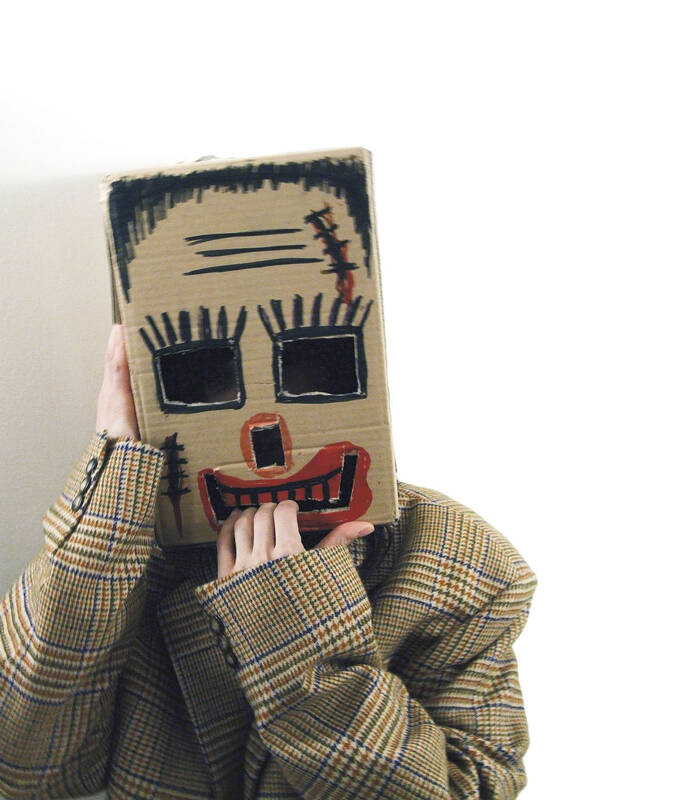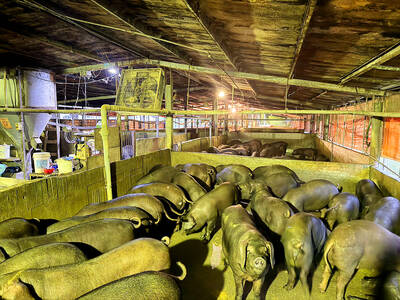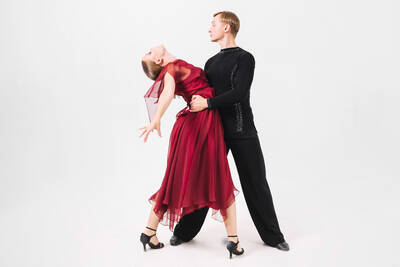對話 Dialogue
清清:咦?華華!你的嘴怎麼了?
Qīngqing: Yí? Huáhua! Nǐ de zuǐ zěnmele?

PHOTO: SHUTTERSTOCK 照片:SHUTTERSTOCK 提供
華華:別提了!都是我弟弟啦!真是氣死我了!
Huáhua: Biétíle! Dōu shì wǒ dìdi la! Zhēnshi qìsǐ wǒ le!
清清:發生什麼事了?腫得這麼大,看醫生了嗎?
Qīngqing: Fāshēng shénme shì le? Zhǒng de zhème dà, kàn yīshēng le ma?
華華:昨天不是愚人節嗎?我弟弟不知道從哪裡弄來了一些作弄人的糖果,騙我說要請我吃吃看,結果不但把嘴都染黑了,還害我過敏,整個腫起來,晚上我去醫院拿了藥,今天還比昨天好一點了。
Huáhua: Zuótiān búshì Yúrén jié ma? Wǒ dìdi bùzhīdào cóng nǎlǐ nònglái le yìxiē zuònòng rén de tángguǒ, piàn wǒ shuō yào qǐng wǒ chīchīkàn, jiéguǒ búdàn bǎ zuǐ
dōu rǎnhēi le, hái hài wǒ guòmǐn, zhěngge zhǒng qǐlai, wǎnshàng wǒ qù yīyuàn nále yào, jīntiān hái bǐ zuótiān hǎo yìdiǎn le.
清清:唉!愚人節開開玩笑是沒關係,但玩得過份了就不好了。
Qīngqing: Ai! Yúrén jié kāikāi wánxiào shì méiguānxi, dàn wán de guòfènle jiù bùhǎo le.
華華:最可惡的是那些選在愚人節告白的,搞不清楚是真是假,超煩的。
Huáhua: Zuì kěwù de shì nàxiē xuǎn zài Yúrén jié gàobái de, gǎo bù qīngchǔ shì zhēn shì jiǎ, chāo fán de.
清清:哈哈哈!恭喜你啊!有人跟你告白咧!被騙都應該高興。
Qīngqing: Hāhāhā! Gōngxǐ nǐ a! Yǒurén gēn nǐ gàobái lie! Bèi piàn dōu yīnggāi gāoxìng.
華華:什麼啦!我有這麼沒人要嗎?你給我記住!
Huáhua: Shénme la! Wǒ yǒu zhème méi rén yào ma? Nǐ gěi wǒ jìzhù!
翻譯 Translation
Qingqing: Hey? Huahua! What happened to your mouth?
Huahua: Don’t bring it up! It’s all because of my younger brother! It’s so infuriating!
Qingqing: What happened? It’s so swollen. Did you see a doctor?
Huahua: Wasn’t yesterday April Fools’ Day? My brother somehow got hold of some prank candies and tricked me into trying them, saying he wanted to treat me. As a result, not only did my mouth turn black, but it also caused an allergic reaction, swelling up. I went to the hospital last night and got some medicine. Today is a bit better than yesterday.
Qingqing: Oh! April Fools’ Day pranks are okay, but it’s not good if they go too far.
Huahua: The worst part is those who choose April Fools’ Day to confess their feelings. It’s unclear whether it’s true or false, and it’s super annoying.
Qingqing: Hahaha! Congratulations! Someone confessed to you! Even if it’s a prank, you should be happy.
Huahua: Come on! Do I really have no one interested in me? Remember that!
生詞 Vocabulary
1. 愚人節 (Yúrén jié) April Fools’ Day
2. 騙 (piàn) deceive, cheat, lie
3. 別提了 (Biétíle) Don’t bring it up! Forget it! Don’t mention it!
4. 腫 (zhǒng) swell, swollen
5. 作弄 (zuònòng) prank, tease, trick
6. 染 (rǎn) dye
7. 過份 (guòfèn) It’s over the top. It’s too much.
8. 可惡 (kěwù) darn, curses, annoying
教材音檔 Audio Files
國立清華大學華語中心提供
By National Tsing Hua University Chinese Language Center:

For many people in Taiwan, childhood memories of rural life include pig pens standing beside family homes. Leftover rice, vegetable scraps and soup from daily meals were poured into buckets and fed to pigs. This practice of feeding pigs with household food waste was once a common way of life, both an economic choice and an expression of agricultural society’s deep respect for conserving resources. From a practical standpoint, pigs are omnivorous animals capable of efficiently digesting food scraps that humans can no longer eat. For rural households, food waste cost almost nothing, yet it could be converted into pork, a

Sea star wasting disease (SSWD) is a strange and serious illness affecting sea stars, or starfish. This disease causes sea stars to develop painful lesions, lose their arms, and eventually turn into a gooey, melted mess. Since it was first observed in 2013, millions of sea stars along the Pacific coast of North America have died from this __1__. Although viruses were once considered a possible cause, researchers now believe that environmental stressors and microorganisms are primarily __2__ for sea star wasting disease. One of the main environmental triggers appears to be warmer ocean water. When the water heats

Tango unfolds in a dimly lit room, where a haunting melody ushers two dancers into a close embrace. Here, music and movement merge into a silent yet passionate conversation, expressing longing, memory and shared purpose. What makes tango truly magical is the deep interaction and spontaneous improvisation between partners. Tango began in the late 19th century in Buenos Aires, Argentina’s bustling capital. Born in the poor working-class neighborhoods and busy port areas, this dance emerged from a melting pot of cultures. European immigrants, African slaves and local residents all contributed to its unique character. From these rich influences, tango

Continued from yesterday(延續自昨日) https://www.taipeitimes.com/News/lang The loss of sea stars significantly impacts the ocean ecosystem. Sea stars are important __6__ that help control populations of mussels and sea urchins. Among them, the sunflower star is one of the largest and fastest sea stars and is adept at preying on sea urchins. Without sea stars, sea urchins can __7__ in numbers and devastate kelp forests. These forests are essential __8__ for many marine animals and also help capture carbon from the atmosphere, which is vital in the fight against climate change. The mystery behind SSWD is still __9__, but it is clear that